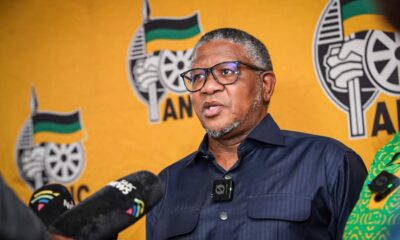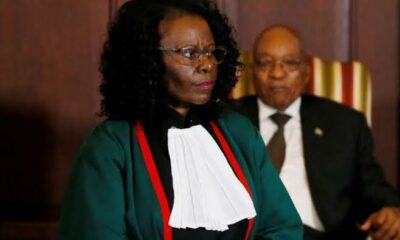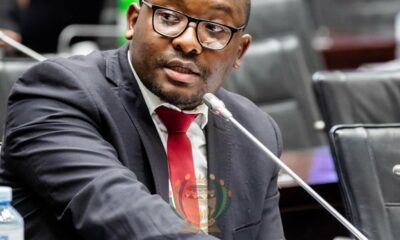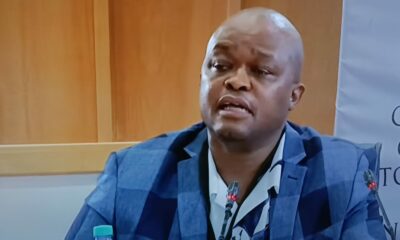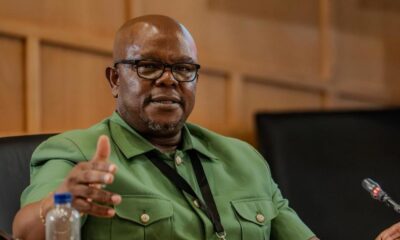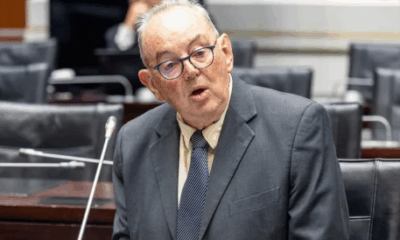News
“We Are the Incoming Government”: MK Party Shrugs Off Turmoil as It Sets Its Sights on Power
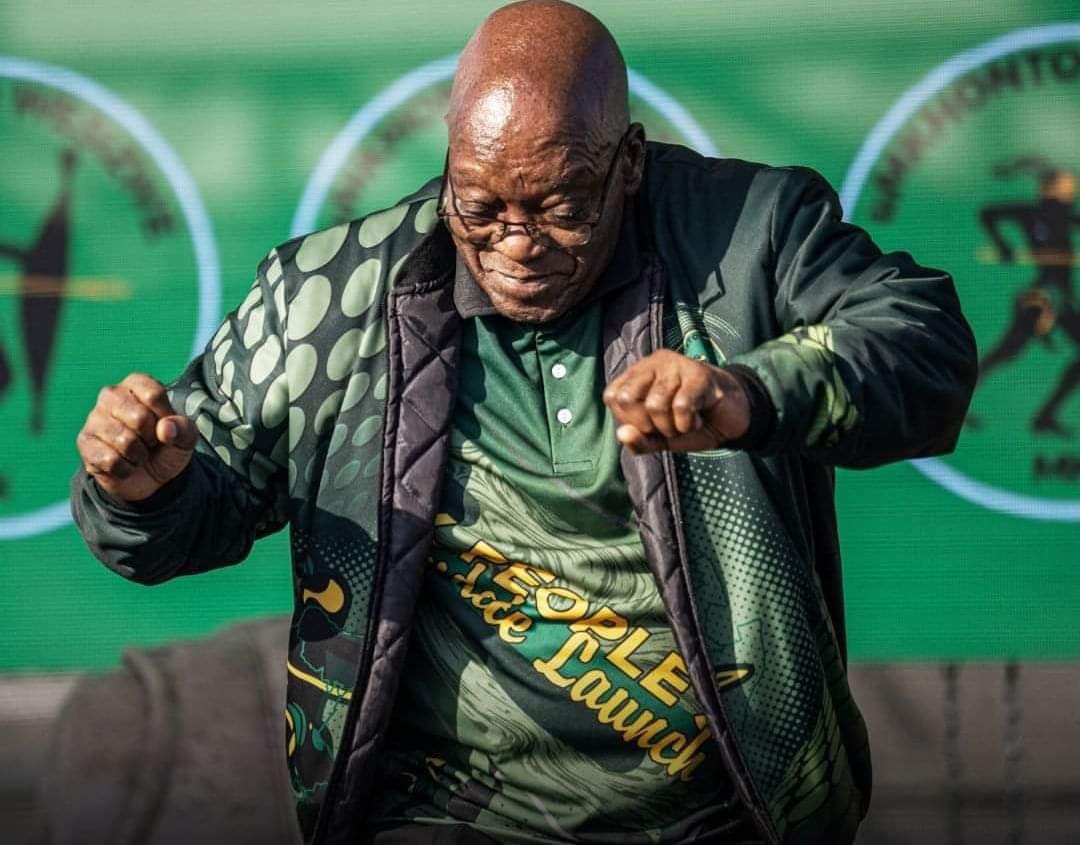
Despite swirling controversy, internal conflict, and leadership shake-ups, the Umkhonto Wesizwe (MK) Party remains unshaken in its belief that it is destined not for opposition, but for government.
MK Party spokesperson Nhlamulo Ndhlela, in a recent interview on Newzroom Afrika, made it clear: the party’s mission is not to become the official opposition, but rather “to govern South Africa.” Founded in December 2023, the MK Party has, in under a year made serious waves in Parliament, all while navigating its own growing pains.
“South Africans believe in us. We’re the fastest-growing political party in the country,” said Ndhlela. “We are punching above our weight.”
Fast Growth, Fierce Headwinds
The MK Party’s meteoric rise has come with escalating internal tensions.
This week alone, Eugene Ndlangamandla, a regional coordinator in KwaZulu-Natal’s Umkhanyakude district, resigned, describing the party as being run like “a family and friends business.”
“I have noticed a lack of discipline among members,” his resignation letter stated, before confirming his move to Floyd Shivambu’s Mayibuye Consultation Team.
The internal turbulence has been exacerbated by:
-
A forged email allegedly using Parliamentary leader John Hlophe’s signature to attempt to remove Ndhlela as party whip.
-
A defamation lawsuit filed by Ndhlela against Floyd Shivambu, alleging R3 million in damages after accusations of drug and alcohol abuse.
-
Demands to oust Parliamentary Chief Whip Colleen Makhubele, who faces backlash for “undemocratic” decision-making, including over her position on Israel and broader leadership concerns.
These incidents, among others, have cast a spotlight on internal dysfunction, prompting analysts to question whether the party’s structure can withstand the pressures of rapid growth.
Leadership or Loyalty? Analysts Weigh In
Independent analyst Goodenough Mashego suggested that power within the party remains closely tethered to Jacob Zuma’s preferences, rather than democratic processes.
“It’s not about popularity or skill, it’s about who Zuma wants,” said Mashego.
Dr. Ntsikelelo Breakfast, another political analyst, argued that internal conflict isn’t unusual in young parties, but said the MK Party must introduce more structured, democratic processes to weather the storm.
“These problems won’t go away on their own,” he said in an interview with eNCA.
No Apologies for Change
Ndhlela dismissed concerns about instability, saying internal changes reflect strategic evolution, not dysfunction.
“Changes are changes. There’s nothing wrong with them. It is important we adapt to the pulse of the nation,” he said. “We are focusing on our work. We are the incoming government.”
Parliamentary Presence, Popular Appeal
The MK Party currently boasts one of the youngest parliamentary caucuses, with most MPs under 50 and newcomers to the legislature.
“No one can say MK’s presence isn’t felt in Parliament,” Ndhlela said.
Despite recent controversies, the party continues to draw support from disillusioned voters, particularly in KwaZulu-Natal, where it has become a dominant force in just months.
But whether the MK Party’s surge in popularity will translate into long-term stability and electoral victory remains to be seen, especially with high-profile resignations and factional divides threatening to derail its momentum.
For now, Umkhonto Wesizwe remains a paradox: a political upstart burning with popular support, but bruised by leadership turmoil.
While critics warn that loyalty politics and internal strife could become the party’s Achilles heel, Ndhlela insists the turbulence is just growing pains on the road to power.
“We’re not aiming to oppose,” he said. “We are preparing to govern.”
{Source: IOL}
Follow Joburg ETC on Facebook, Twitter , TikTok and Instagram
For more News in Johannesburg, visit joburgetc.com

